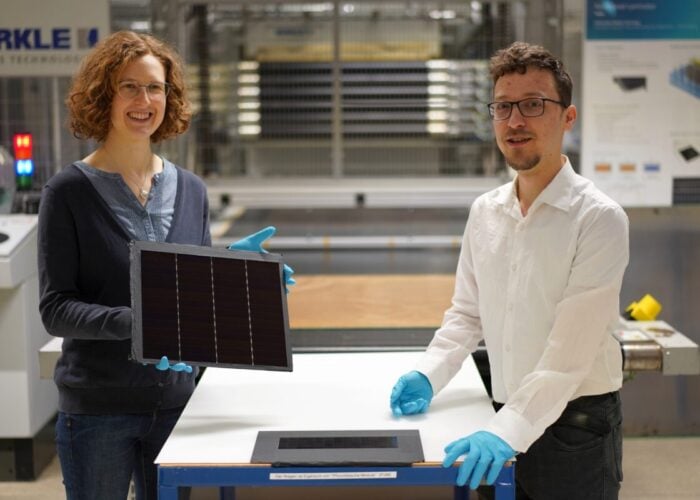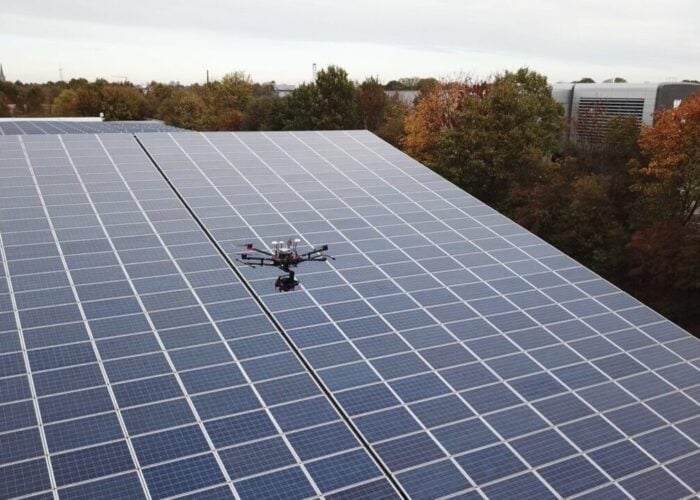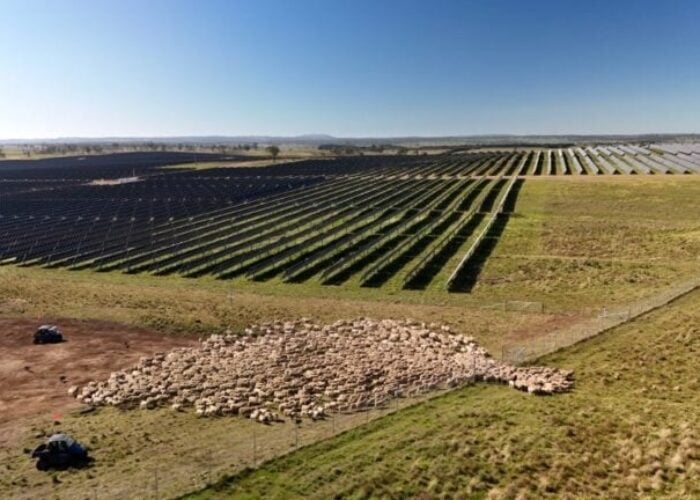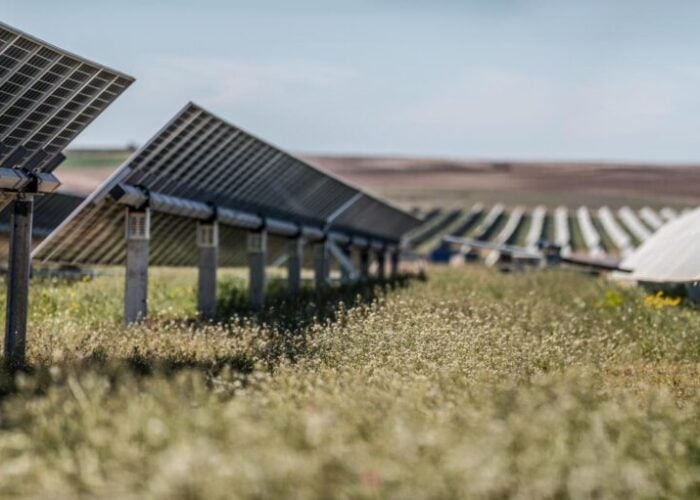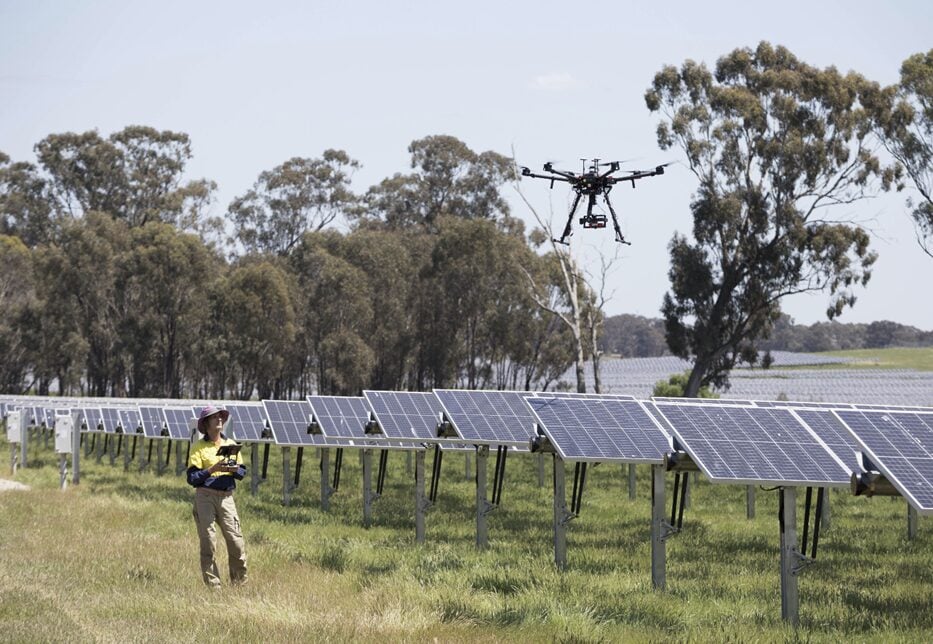
The New South Wales government has announced AU$26.2 million (US$17 million) in funding for several Australian solar PV and battery initiatives.
The funding, allotted via the Clean Technology Innovation grant, will be awarded to 13 projects across New South Wales to help them commercialise their technology.
Try Premium for just $1
- Full premium access for the first month at only $1
- Converts to an annual rate after 30 days unless cancelled
- Cancel anytime during the trial period
Premium Benefits
- Expert industry analysis and interviews
- Digital access to PV Tech Power journal
- Exclusive event discounts
Or get the full Premium subscription right away
Or continue reading this article for free
Each project will progress through stages, including design, prototyping, construction, testing and real-world scenarios to ensure commercial viability. Funding ranges from AU$400,000 to AU$5 million per project.
The New South Wales minister for climate change and energy, Penny Sharpe, said each technology granted funding through the initiative addresses the “critical challenges climate change presents.”
“This investment will see these projects transition into practical, real-world solutions for emissions reduction that also boost innovators, investment and new jobs,” Sharpe added.
The successful projects must be completed by 2028 and deliver tangible outcomes in the state’s transition to a low-carbon economy.
Solar Sunshot Program winner bags AU$2.5 million
Solar-based companies that will be awarded a share in this funding include Kardinia Energy, Lab360 Solar, BT Imaging and 5B.
The recipient with the biggest share of the funding is 5B, which recently became the first recipient of the Australian government’s AU$1 billion Solar Sunshot Program.
5B has secured AU$2.5 million in funding through the New South Wales government’s Clean Technology Innovation grant, adding to the AU$46 million it was awarded through the Sunshot initiative.
Both funding sets have been awarded for 5B’s “Maverick” automated solar deployment system.
The Maverick solution is a pre-assembled PV structure with added solar modules that can be unfolded and deployed easily at project sites, dramatically reducing installation times and labour hours.
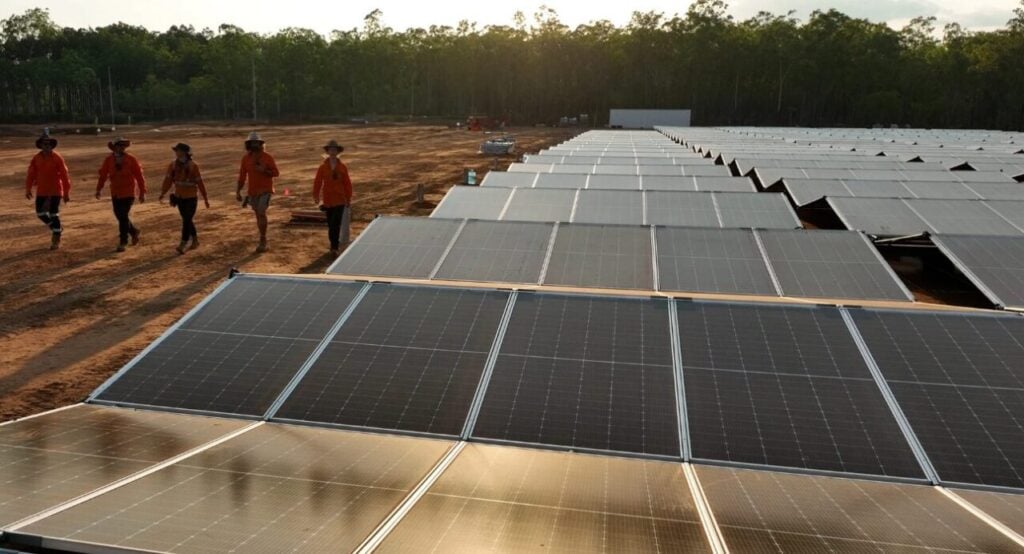
Pre-assembled solutions can also be redeployed in other locations, which mitigates fears about the potentially high financial and environmental costs of decommissioning a PV project.
5B has already worked on two such sites in Australia, one a 16.9MW deployment on a waste rock dump in Western Australia for a mining company with its EPC partner Zenith Energy.
It has also completed a 1.5MW deployment on a landfill site for a waste management company in Albury, New South Wales. It supplies power to a hydrocarbon processing plant and the regional town.
Printed solar tech used by Coldplay awarded AU$2.25 million
The next largest solar-based recipient from the Clean Technology Innovation grant is Kardinia Energy for its fully recyclable printed solar technology.
Kardinia’s printed solar modules weigh 300 grams per square meter and utilise easily sourced, non-silicon-based materials. This enables localised manufacturing that bypasses supply chains and the economic constraints imposed by traditional photovoltaic modules.
The printed solar technology is being touted for several different applications, such as entertainment for use in stadiums, industrial rooftops unable to support conventional systems, off-grid power requirements for emergency response and disaster relief, and deployment in regions where the need for low-cost, flexible, and clean everyday electricity is pronounced.
In the entertainment sector, printed solar technology has already been deployed in several venues worldwide, thanks to its support of British rock band Coldplay’s Music of the Spheres World Tour.
It will continue to be used at upcoming North American venues on the tour, including performances in Las Vegas, El Paso, Miami, and Foxborough.
The Clean Technology Innovation grant will be used to build a commercial manufacturing facility for Printed Solar.
Lab360 Solar awarded AU$1.77 million for daytime photoluminescence technology
Another solar-based recipient of funding under the Clean Technology Innovation grant is Lab360 Solar.
The organisation, which was founded in 2024, has developed a daytime photoluminescence (DPL) technology that can provide insights into quality variations in solar PV power plants that are unattainable with existing technology.
Lab360 has successfully implemented this technology at utility-scale solar PV power plants, delivering numerous distinctive and valuable outcomes. The organisation aims to commercialise an automated solution by integrating DPL with other imaging and data-based quality assessment methods.
In doing so, this could expose module quality variations resulting from module degradation.
Lab360 was recently shortlisted by the Australian Renewable Energy Agency (ARENA) for future funding opportunities through its AU$100 million Solar ScaleUp Challenge, which aims to support the deployment of solar modules.
BT Imaging secures nearly AU$600,000
The company with the smallest amount of funding is BT Imaging, which is looking to develop a “world-first” in-line Photoluminescence and Machine Vision solution with automated tuning. This solution could help make solar cells more efficient and cost-effective.
The proprietary photoluminescence imaging technology effectively predicts cell performance, identifies process faults, and enables process control and yield maximisation.
This could enable PV manufacturers throughout the supply chain to maximise their profits and reduce manufacturing costs by assessing material and process quality.
Battery storage industry supported through New South Wales government funding
It is not only the solar industry that has been supported through this funding, but the battery storage sector has seen an allocation of funds through the grant.
For instance, Renewable Metals received AU$1.1 million to assess the feasibility of creating the state’s first commercial lithium battery recycling refinery. This could help build a local recycling industry, support clean technology and keep valuable battery materials in use across energy, transport and industry.
Another notable battery storage project to have received funding is FPR Energy Limited (AU$4.85 million), which is developing particle-based concentrated solar thermal technology. This technology could provide long-term green heat and power for industrial applications.
Other grant awardees span multiple sectors, including shipping, aviation, agriculture, smart systems, and more.

